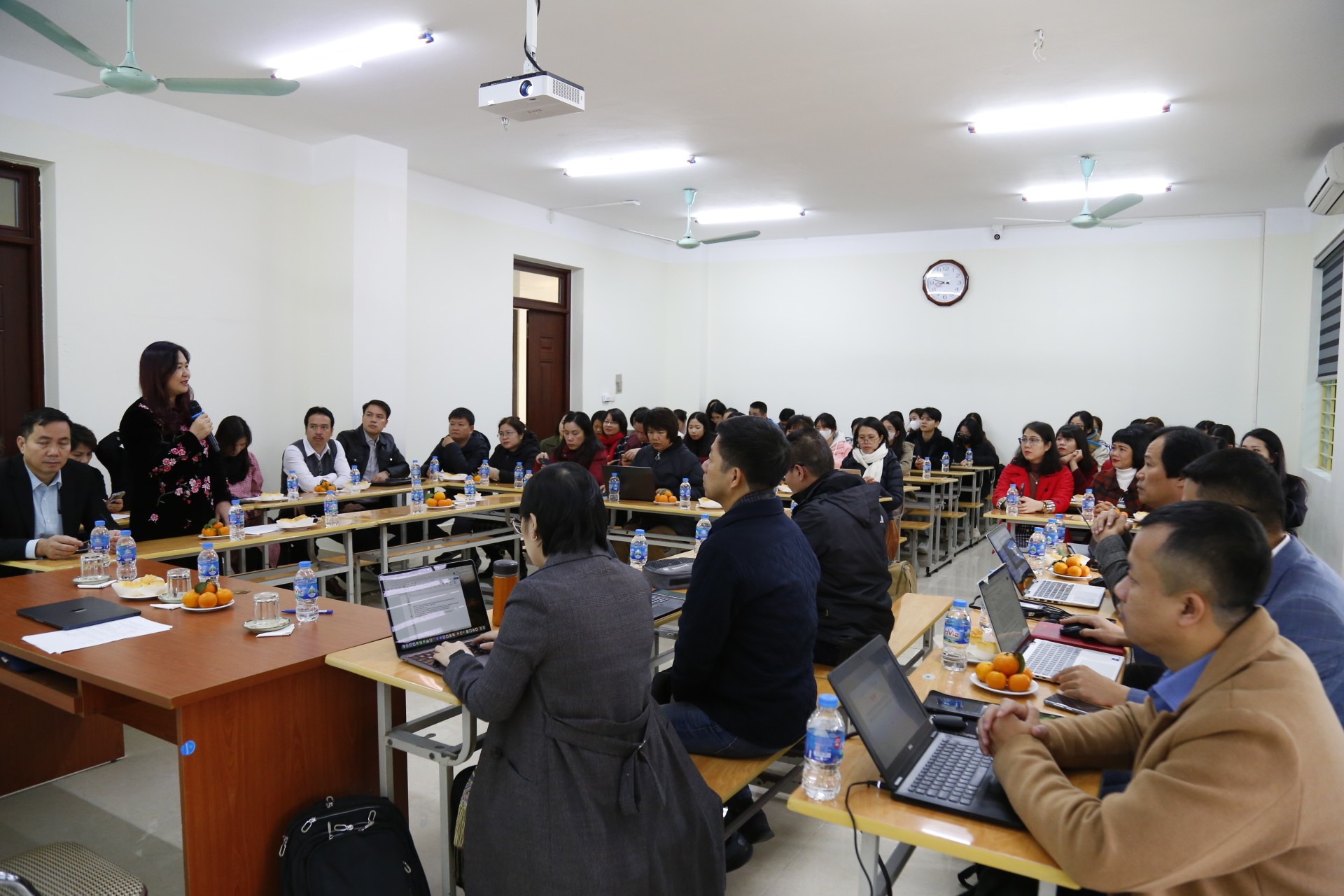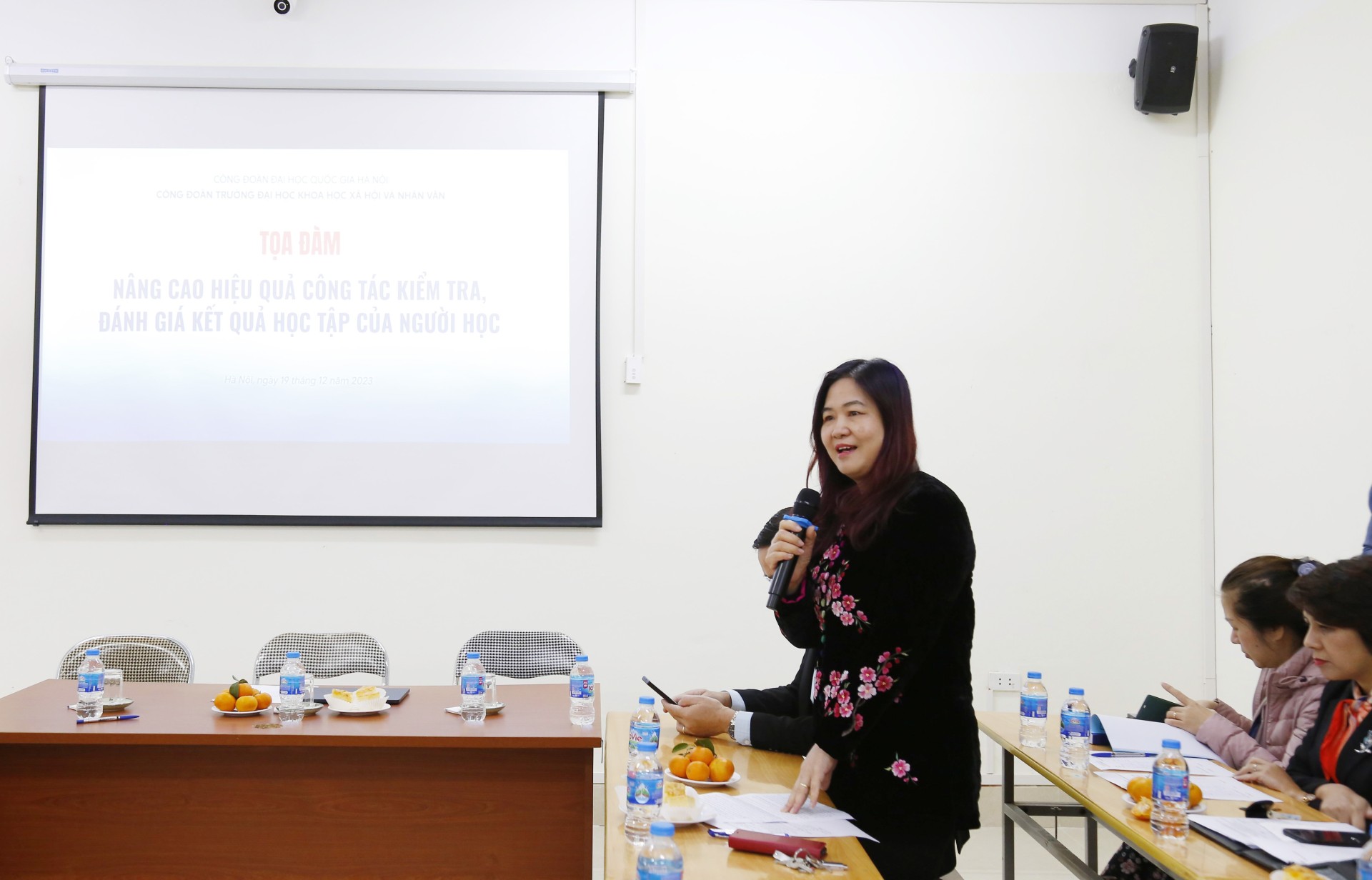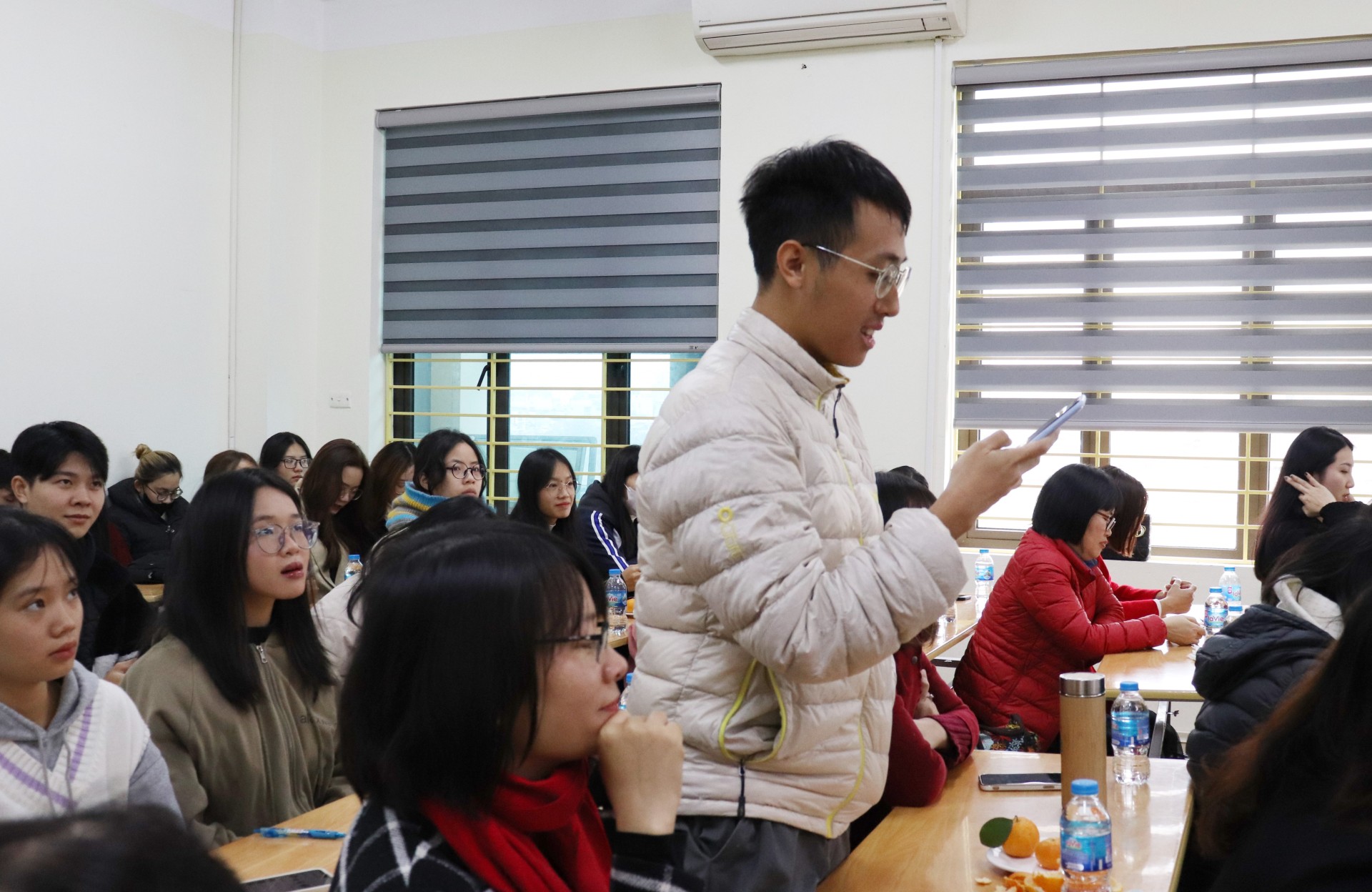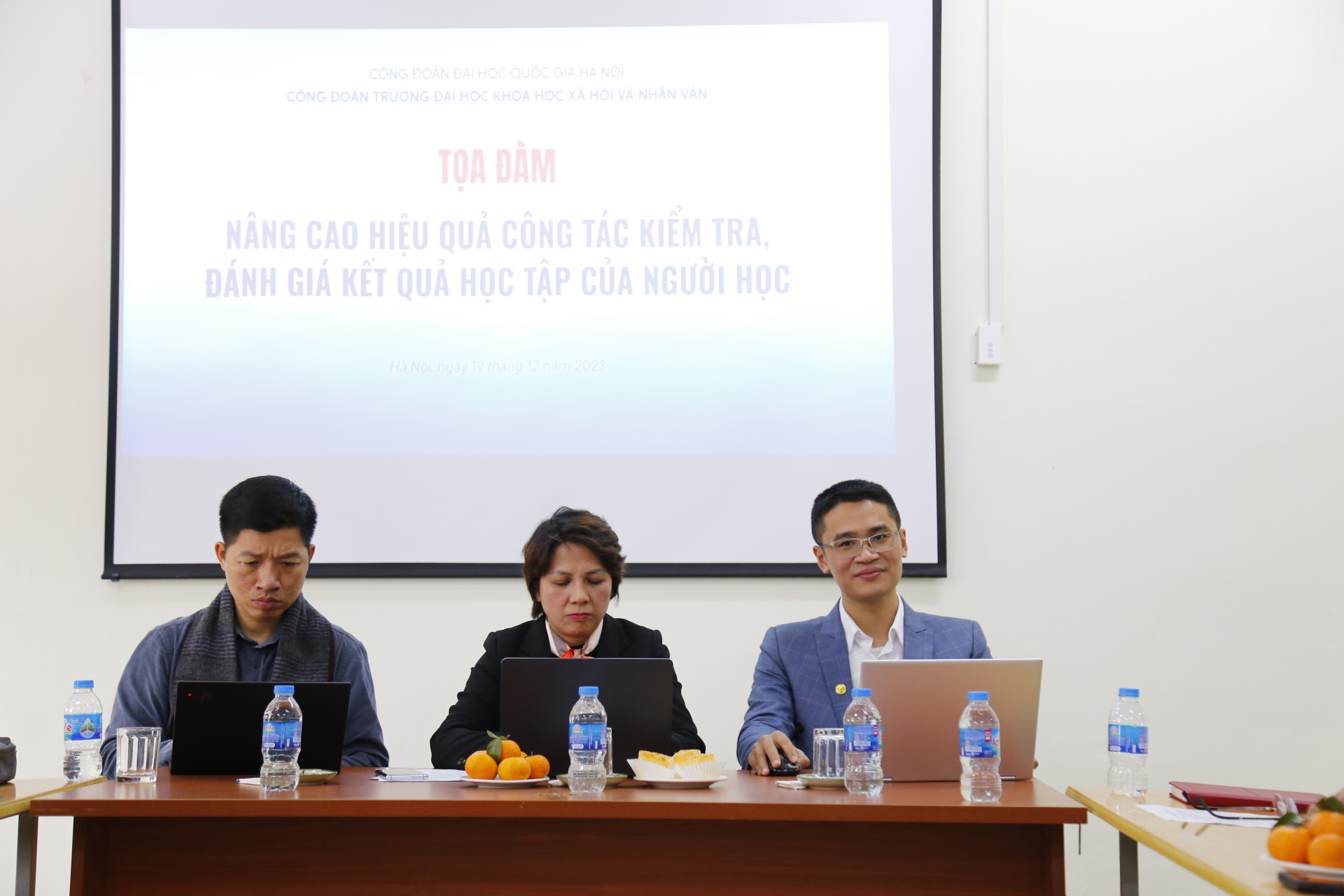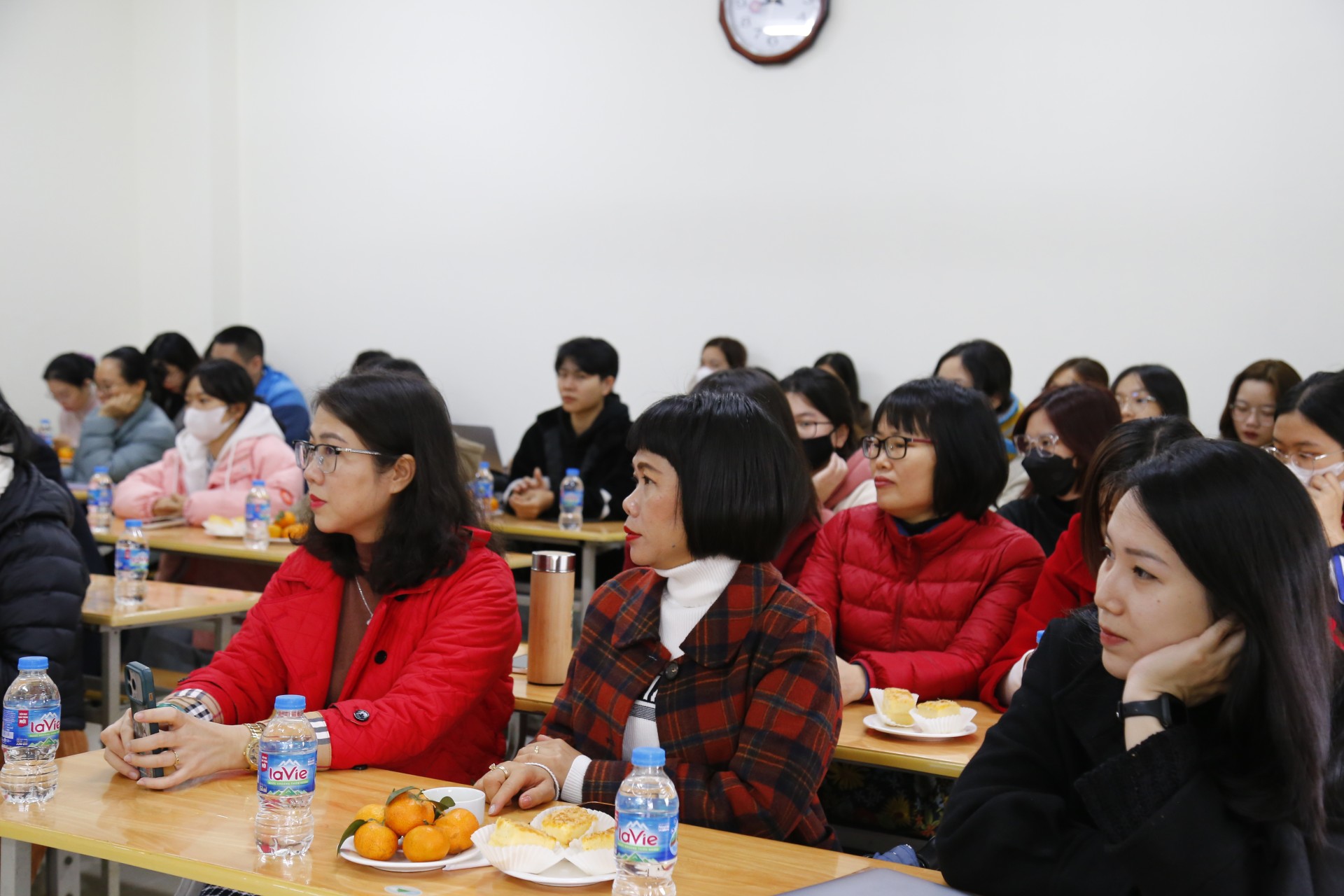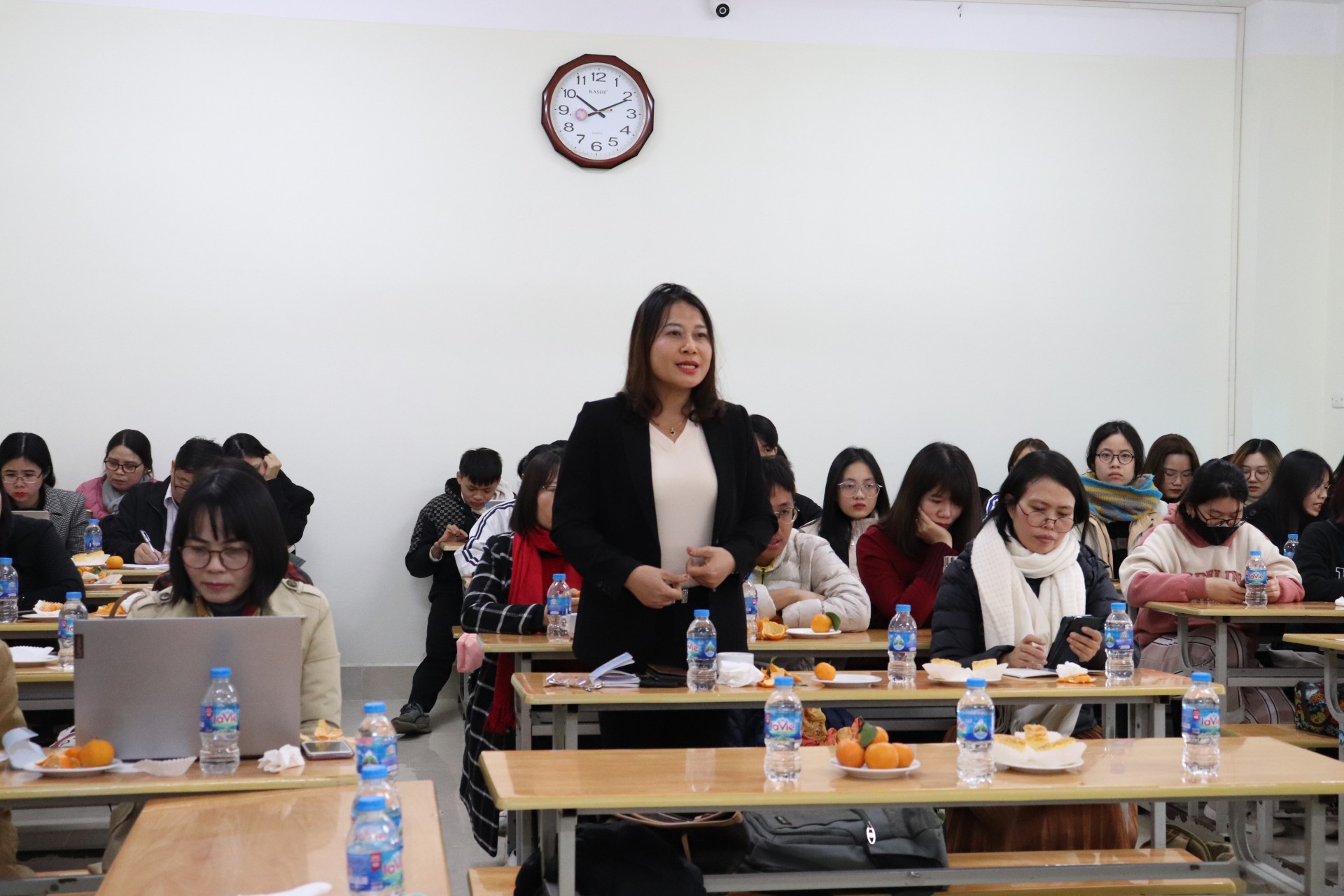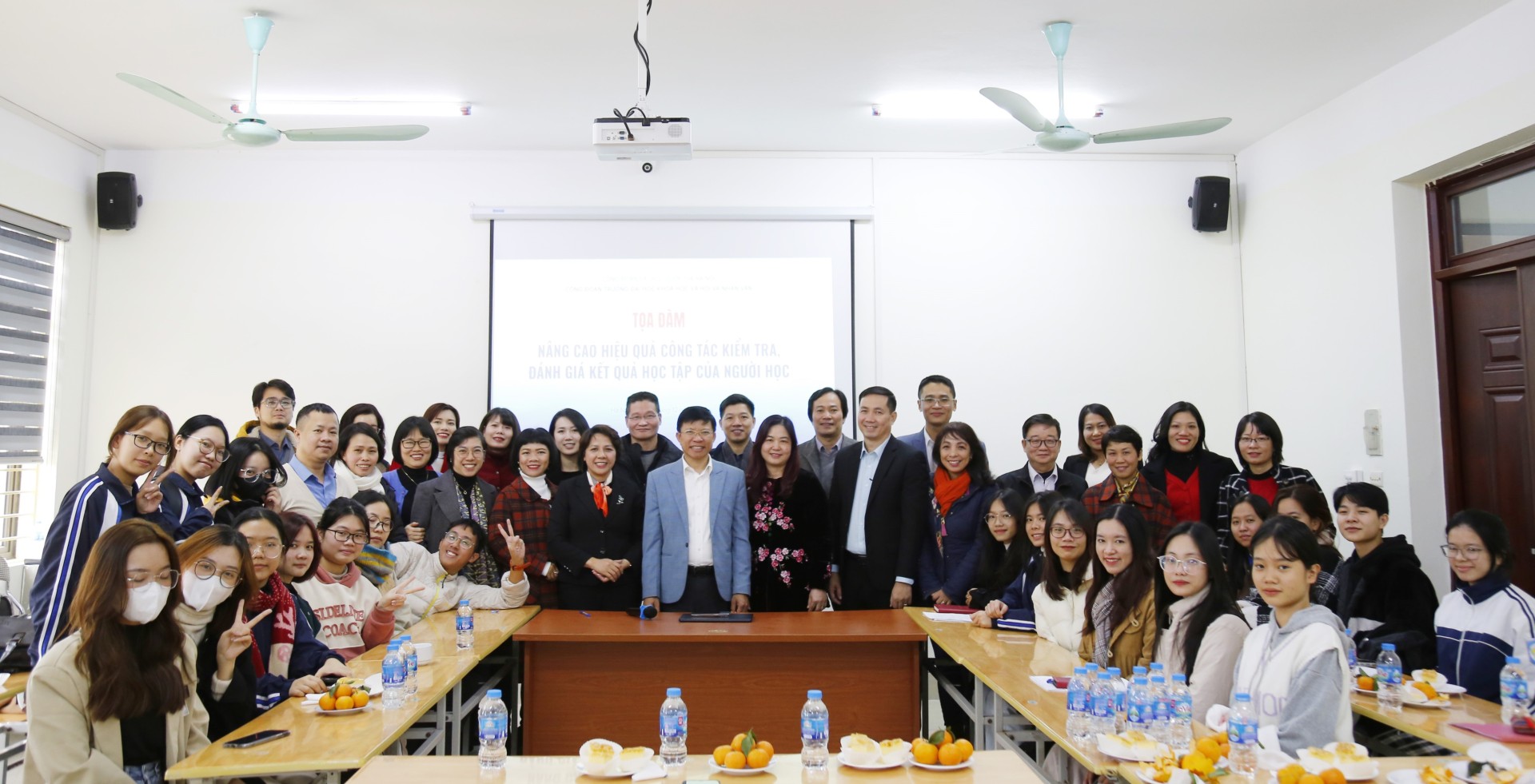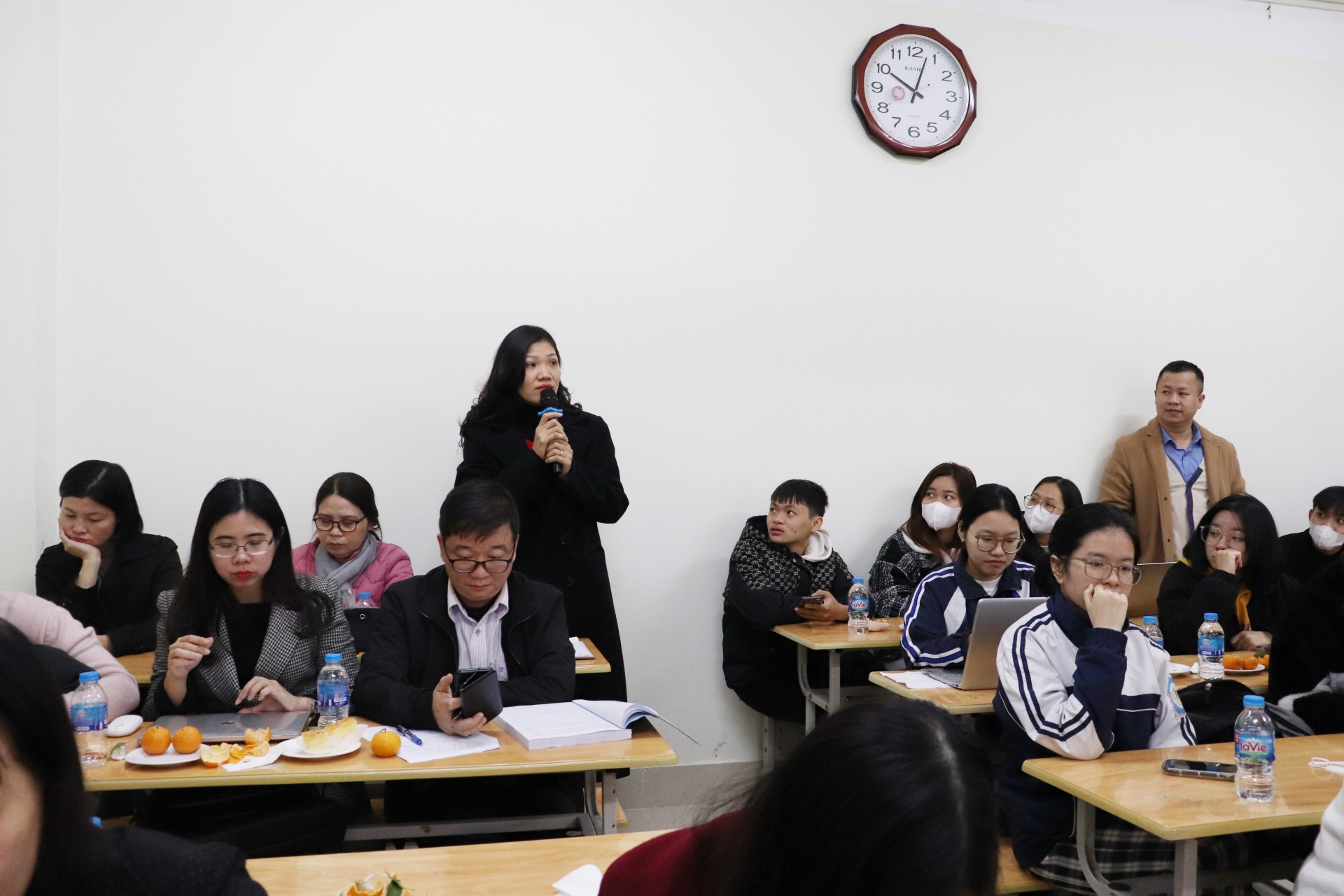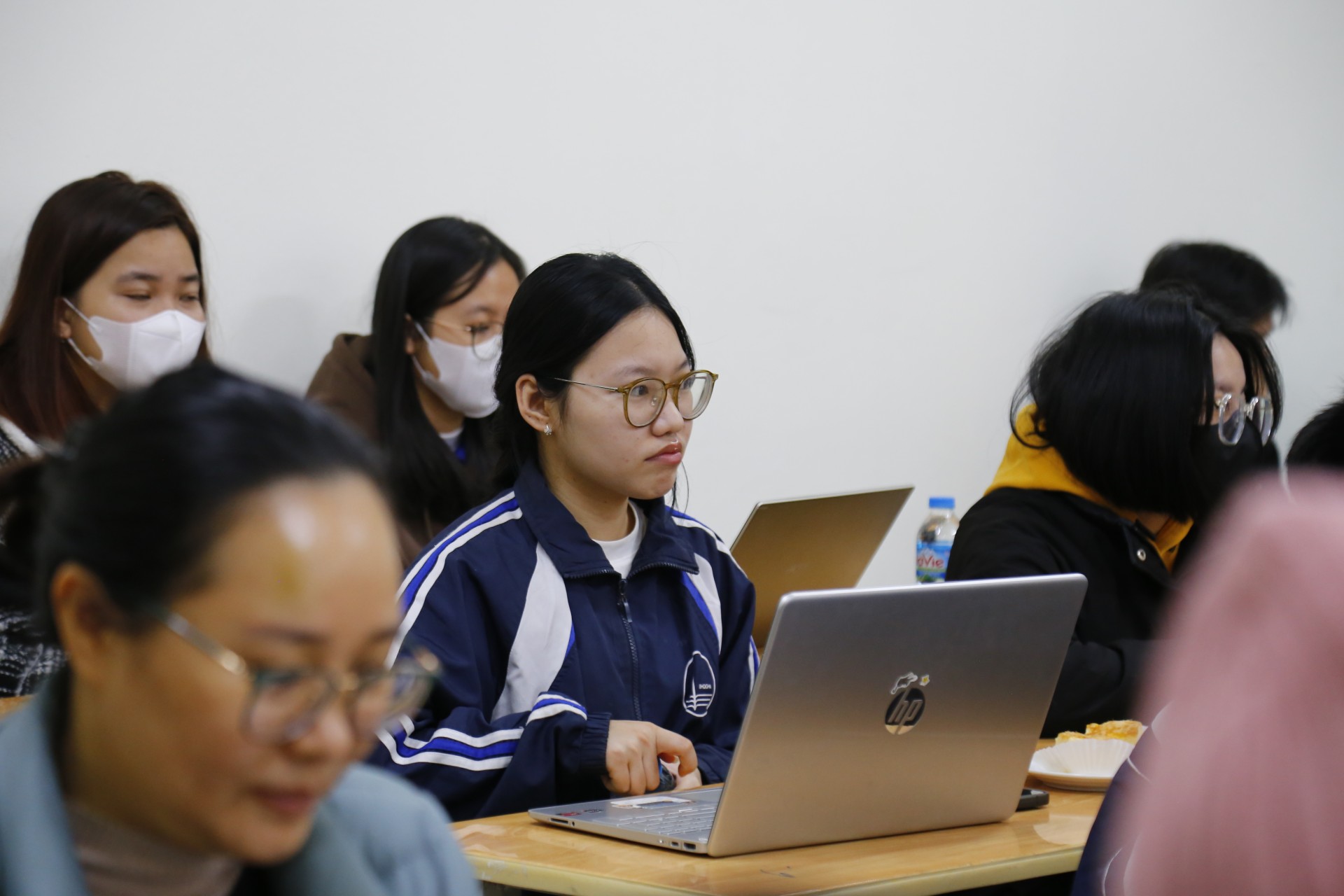The seminar attracted a large number of participants, including managers from various departments, lecturers, trainees, and students from different faculties.
Speaking at the seminar, Rector Hoang Anh Tuan highly appreciated the initiative of the University's Trade Union in proposing practical activities closely related to the professional expertise and actual needs of lecturers and students. Assessment is a crucial step in improving the quality of education and innovating teaching methods. Currently, assessment methods are extremely diverse; therefore, lecturers need to flexibly apply methods suitable for different learners to fairly and accurately evaluate students' learning and training results, while simultaneously encouraging and motivating students to be creative and proactive in their studies. Through this seminar, the University aims to listen to the opinions and proposed solutions from lecturers, students, and functional departments to improve and innovate the assessment of learning outcomes and enhance the quality of education.
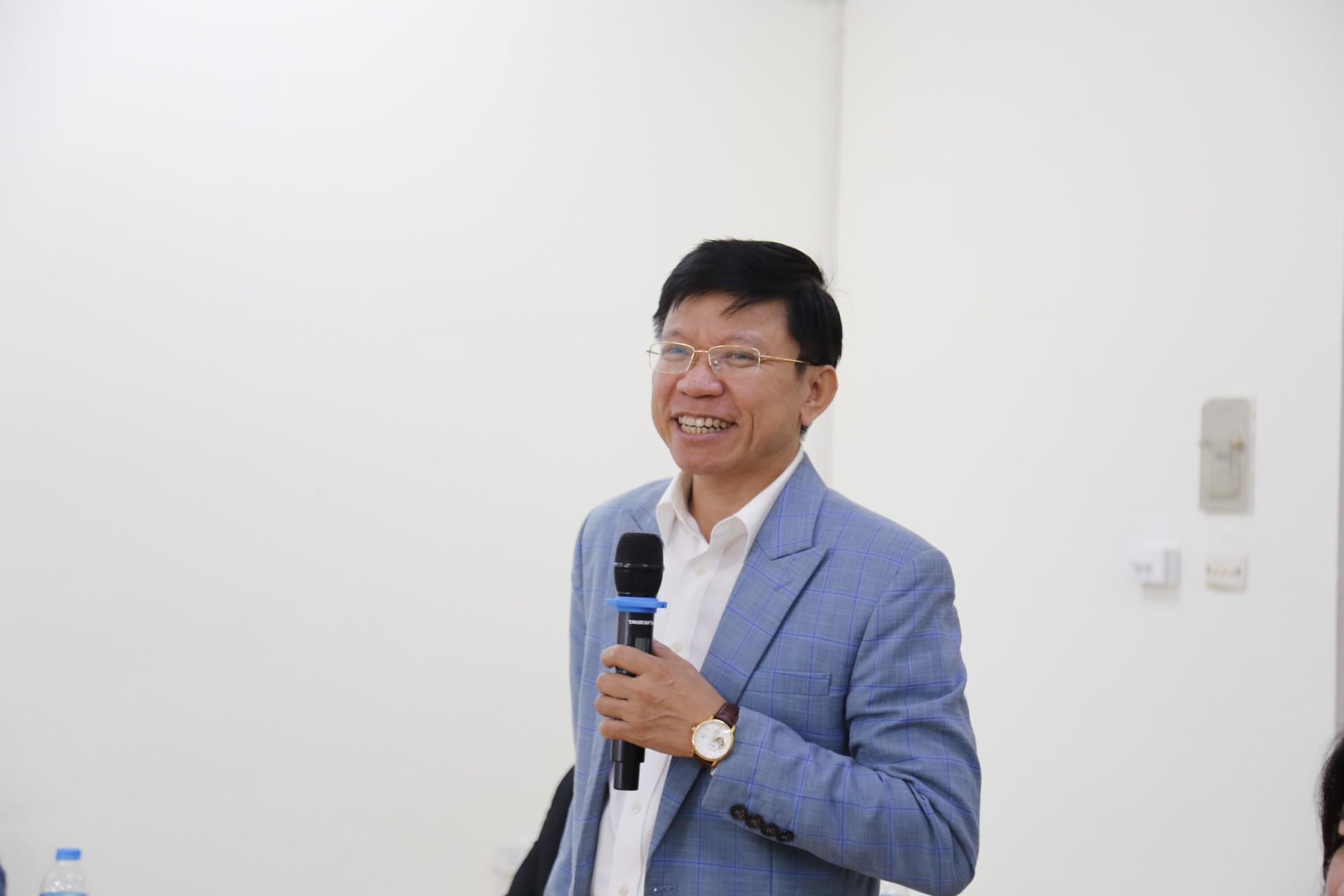
Professor Hoang Anh Tuan, Rector of the University of Social Sciences and Humanities, attended and delivered a keynote speech.
In her opening remarks at the seminar, Dr. Ngo Thi Kieu Oanh, President of the University's Trade Union, emphasized that the seminar's objective was to provide a forum for faculty members, relevant departments, and students to share the current situation and existing shortcomings in the assessment and evaluation of student learning outcomes. The seminar offered a multi-faceted perspective and evaluation from the University, faculty, and students regarding assessment and evaluation activities.
The Trade Union Executive Committee invited three speakers: Dr. Pham Huy Cuong, Director of Training Quality Assurance; Dr. Nguyen Hoai Phuong, lecturer in the History Department; and Dr. Vu Van Anh, lecturer in the International Studies Department, to present multi-faceted and comprehensive perspectives from the viewpoints of managers and lecturers directly teaching general subjects as well as specialized subjects.
Based on open discussions, the seminar will propose several solutions to improve and innovate this work according to the criteria of fairness, accurate assessment of students' abilities, and encouragement of creativity and proactiveness in learning - emphasized Ngo Thi Kieu Oanh, President of the school's Trade Union.
In his presentation titled "Continuing to Enhance the Effectiveness of Assessment and Evaluation to Meet Training Quality Assurance Requirements," Dr. Pham Huy Cuong provided a very specific analysis of the role of assessment and evaluation in ensuring training quality according to AUN-QA standards, the regulations in training circulars and regulations on assessment and evaluation, and the specific forms and objectives of this work. Based on the recommendations of the External Evaluation team for training programs, Dr. Pham Huy Cuong emphasized several shortcomings: there is no detailed guidance on assessment and evaluation according to learning outcomes; assessment and evaluation mainly measures the breadth of learning outcomes, i.e., the level of performance of test/exam content, while vertical (depth) measurement has not been clearly described; assessment and evaluation methods are mainly traditional and not truly diverse. Based on these analyses, the Quality Assurance Center's report proposed several solutions to improve the effectiveness of student learning assessment: developing grading rubrics, developing question banks for courses, establishing a mechanism for timely feedback on assessment results to help students improve their learning, strengthening review and planning for quality improvement in assessment, etc.
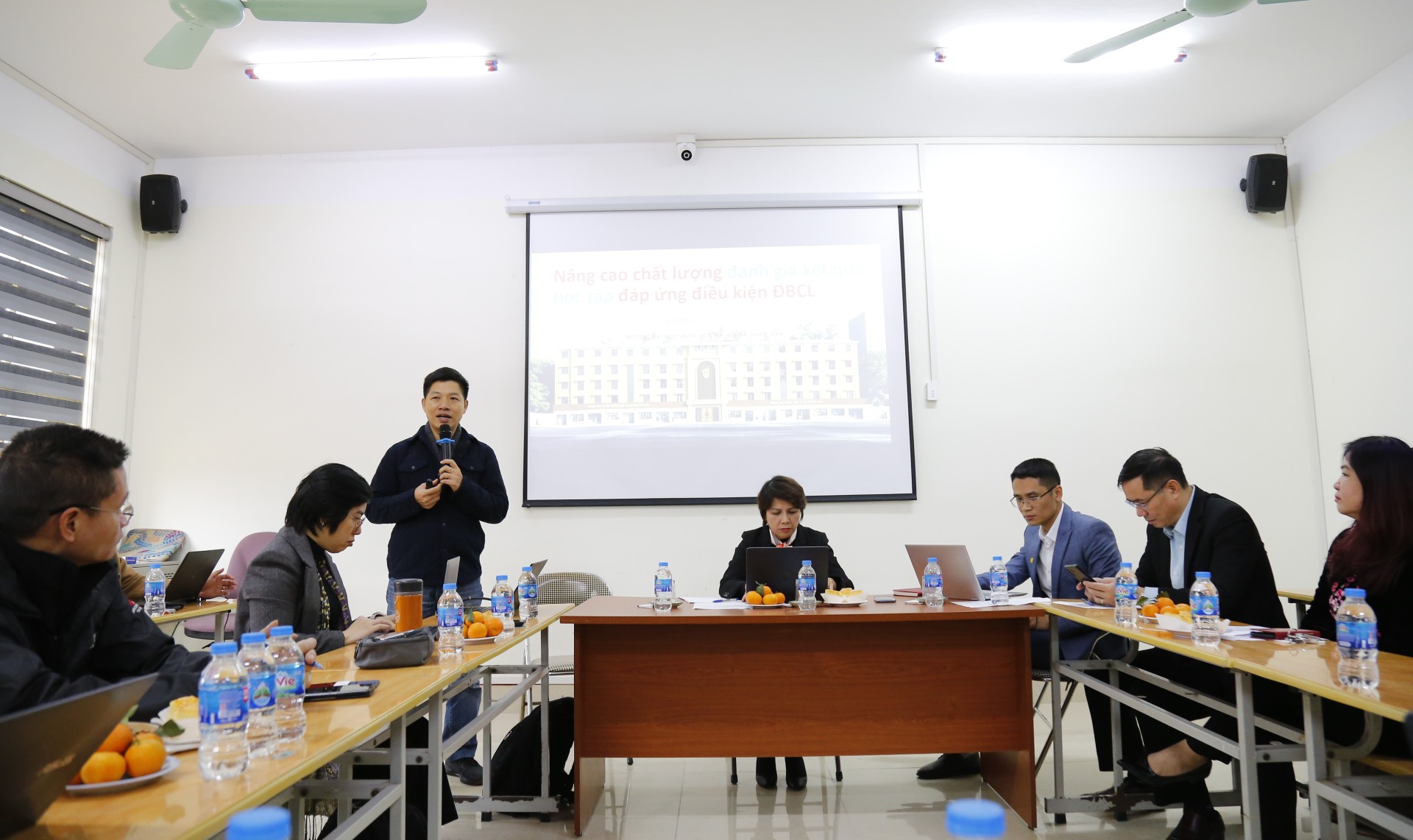
Dr. Pham Huy Cuong shared this at the seminar.
Dr. Nguyen Hoai Phuong (Head of the Department of Cultural Studies and Vietnamese Cultural History, Faculty of History) shared practical experiences in testing and evaluating the course "Fundamentals of Vietnamese Culture" – a compulsory course for all students at Vietnam National University, Hanoi (except the University of Foreign Languages). Given the nature of the course, which typically has a large class size, to ensure effective testing and evaluation, instructors can assess students at various times, in each lesson, chapter, and credit. Therefore, the evaluation process at all stages needs to clearly define: content, learning objectives, methods of conducting the assessment, evaluation methods, forms, and tools of evaluation. Testing and evaluation should not only focus on assessing "achieved" results but also on developing students' self-reliance, fostering enthusiasm, and encouraging active exploration – this is the higher purpose of testing and evaluation. To achieve the above goal, proactive efforts from both teachers and students are needed, along with recognition and evaluation from administrators. Teachers need to overcome the limitations of familiar "traditional methods" to innovate assessment methods (investing time and effort); students need to be active, adaptable, and eager to learn so that assessment activities are not simply about "reciting" what has been learned, but also opportunities to stimulate creativity, satisfy the passion for learning, and explore new knowledge for both teachers and students.
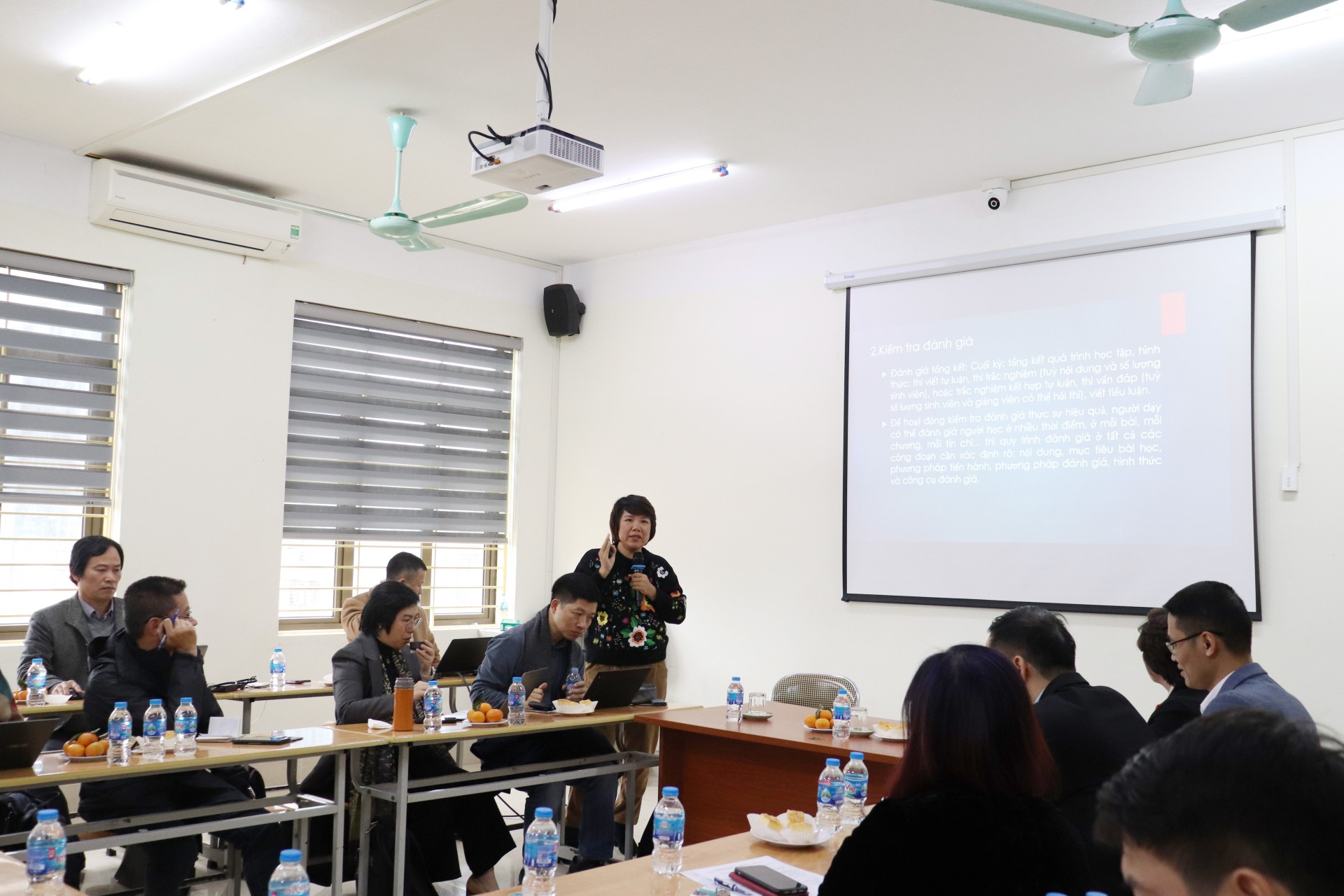
Dr. Nguyen Hoai Phuong shared the advantages and difficulties in conducting assessments of students' learning outcomes in common courses.
Based on her practical experience teaching the International Negotiation course, Dr. Vu Van Anh, a lecturer in the Faculty of International Studies, offers interesting analyses and proposals on "Combining Bloom's Taxonomy and Rubric in evaluating student learning outcomes." Based on an analysis of specific evaluation criteria using Bloom's Taxonomy linked to the course learning outcomes, and incorporating Bloom's Taxonomy into the Rubric evaluation criteria system, Dr. Vu Van Anh provides several recommendations: Regarding Bloom's Taxonomy, criteria related to cognitive and skill aspects can be evaluated, but aspects of attitude/autonomy and responsibility are difficult to assess (as they are primarily based on lecturer observation rather than concrete evidence); Regarding the overall Rubric: The overall Rubric will be difficult to apply to courses with many evaluation criteria. However, combined with Bloom's Taxonomy, the overall Rubric can be a starting point for specifying the component scores (smaller levels) for evaluation. Detailed rubrics can be better applied to courses requiring multiple assessment criteria. To ensure that assessment truly reflects learners' outcomes across knowledge, skills, and attitudes, while encouraging their initiative and creativity, each instructor needs to flexibly apply assessment tools and testing methods, building a rich and high-quality question bank that closely aligns with the learning outcomes for each specific course.
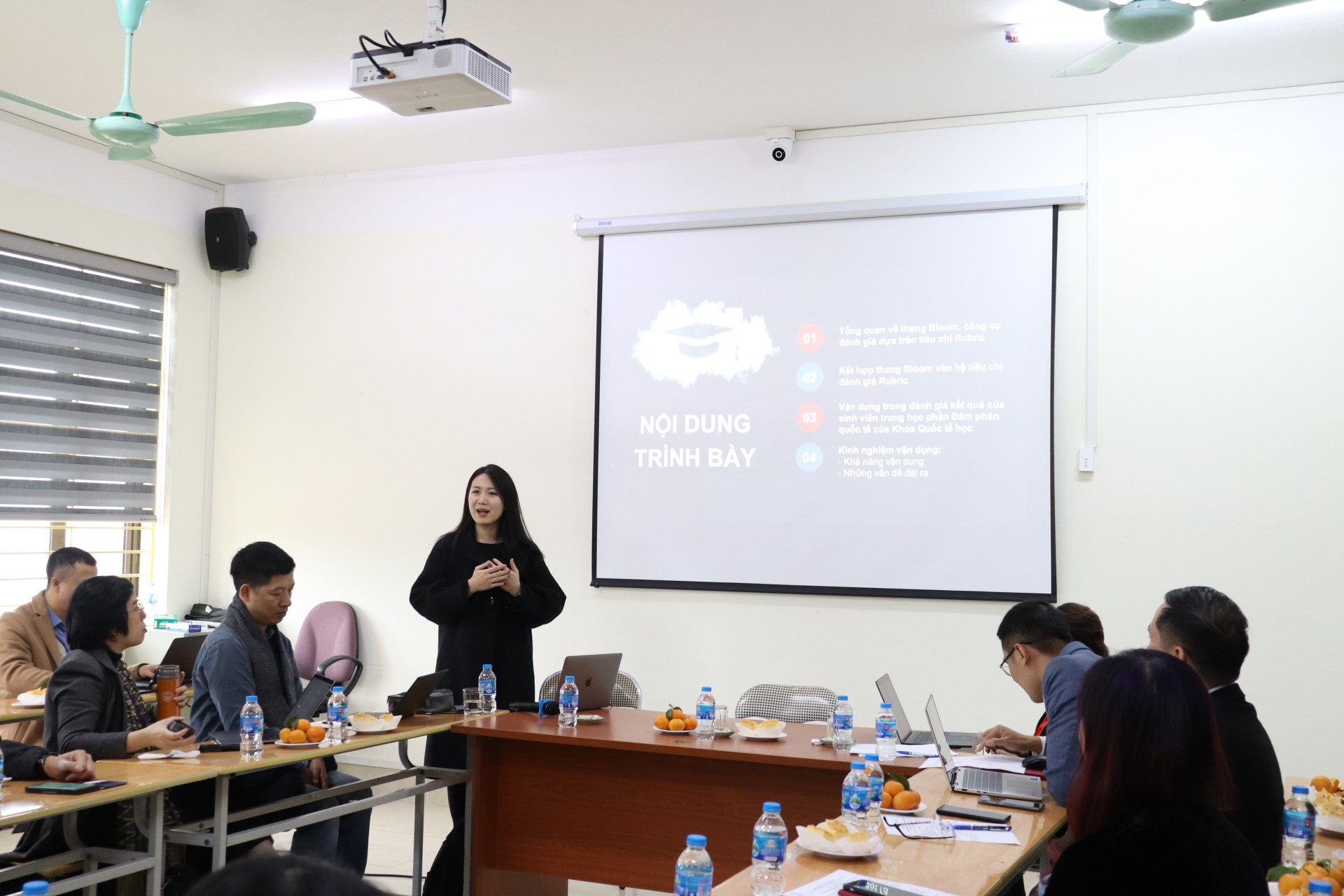
Dr. Vu Van Anh offered several suggestions for combining sets of standards to achieve the most comprehensive assessment and accurately reflect learners' abilities.
The seminar also received many exchanges, shared experiences, questions, and suggestions from lecturers and students of various departments. There was a consensus on the importance of assessment in improving teaching quality and student learning outcomes; and several suggestions were made: assessment plans should be announced at the beginning of each semester (timing, format, and assessment criteria) so that students are aware and can proactively plan their revision to achieve good results; diverse assessment methods should be used; and there should be incentives and bonus points for attendance when students actively participate in extracurricular activities.
Student Tran Hoang Hai Anh, K67, Department of Archival Studies and Office Management, shares her suggestions from a student's perspective. According to some lecturers, to improve the quality of assessment activities, each lecturer needs to proactively build a specific question bank for each course, and at the same time, there needs to be professional evaluation from the department and support from the Training Department to ensure consistency throughout the school.
Concluding the seminar, on behalf of the University's Board of Directors, Professor Hoang Anh Tuan thanked the enthusiastic participation of the staff from various departments and faculties, lecturers, students, and trainees, and shared the dedication of the three speakers. The University listened to the suggestions from lecturers and students, and directed the relevant departments to research and propose improvement plans to further enhance the quality of assessment and evaluation, with the motto of putting learners at the center and creating a truly fair, substantive, and humane learning environment at VNU-USSH. Rector Hoang Anh Tuan once again highly appreciated the proactive and creative efforts of the University's Trade Union and expressed his hope that in the future, the Trade Union Executive Committee would continue to promote, propose, and organize more beneficial and practical activities for the teaching and learning of lecturers and students.
Some photos from the seminar.
